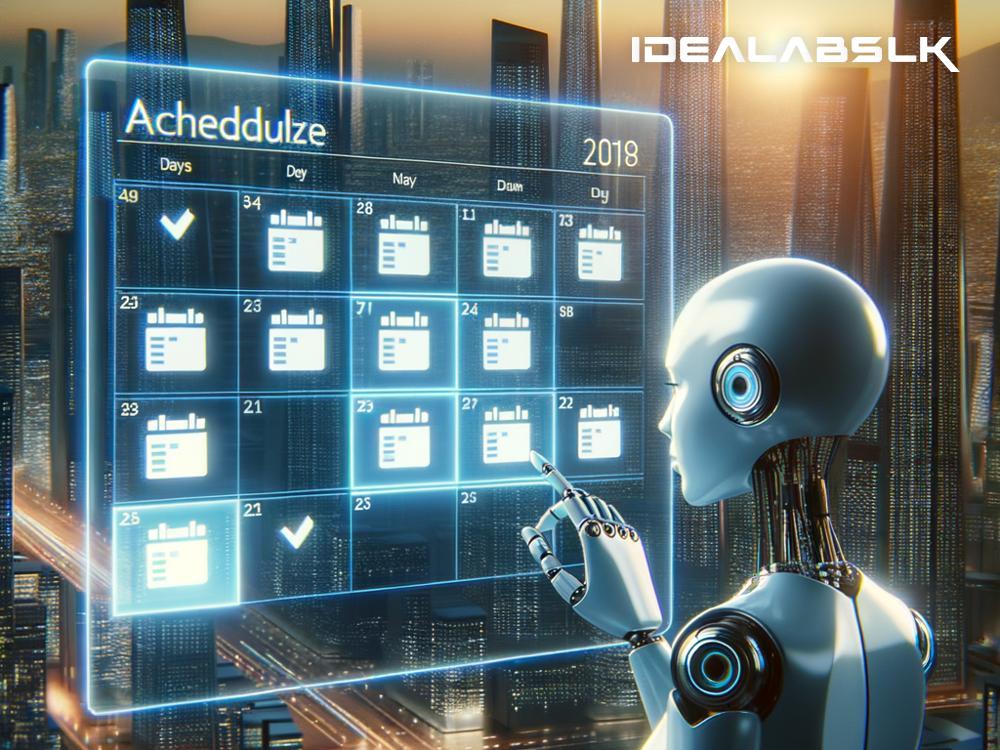Embracing the Future: How AI is Changing the Game of Office Scheduling with Smart Planners
In our fast-paced world where every minute counts, scheduling has proven to be a Herculean task that often consumes more time than it should. Gone are the days of manually plotting meetings, managing team schedules, or booking rooms using a labyrinth of spreadsheets and endless email exchanges. The future is here, and it's smart, intuitive, and incredibly efficient, thanks to AI-powered smart planners. Let's dive into how Artificial Intelligence (AI) is revolutionizing office scheduling, making our work lives significantly easier and far more productive.
The Dawn of AI in Office Scheduling
AI, at its core, is about creating machines or systems capable of performing tasks that typically require human intelligence. It’s about teaching computers to learn from experiences, adjust to new inputs, and perform tasks like a human would. When applied to office scheduling, AI transforms the way we plan our workdays, schedule meetings, and manage resources.
Meeting Scheduling Made Effortless
Remember the back-and-forth emails trying to find a time that works for everyone? AI smart planners like x.ai and Clara have emerged as game-changers. By simply including them in your email threads, these AI assistants can coordinate with all parties, consider everyone's preferences and constraints, and suggest optimal meeting times. They can even handle time zone conversions seamlessly, making the process effortless and significantly reducing the time spent on scheduling.
Maximizing Resource Utilization
In any office, managing resources like conference rooms or equipment can be a logistical nightmare. AI-driven scheduling tools intelligently allocate resources based on demand, priority, or specific project needs. By analyzing usage patterns and preferences, they can suggest adjustments to ensure optimal utilization, prevent double bookings, and even propose rescheduling if a more suitable slot becomes available, thus enhancing overall efficiency.
Personalized Planning
One of the most exciting aspects of AI in office scheduling is its ability to learn and adapt. Over time, AI planners can understand individual preferences, such as favorite meeting times, preferred communication channels, or even the ideal length of meetings. This learning ability enables them to create personalized schedules that align with each user's work habits and productivity peaks, thereby fostering a more engaged and satisfied workforce.
Integrating with the Tools We Love
AI smart planners don’t operate in isolation. They seamlessly integrate with widely-used calendars, email systems, and communication tools, ensuring a smooth and intuitive user experience. This integration means that adopting AI scheduling doesn’t require an overhaul of your existing systems. Instead, it enhances them, making them smarter and more efficient.
The Benefits are Clear
The advantages of leveraging AI for office scheduling are manifold. Apart from the obvious time savings, AI planners can significantly reduce scheduling errors, minimize conflicts, and improve resource allocation. They free up employees to focus on more strategic and creative tasks, thus driving productivity and innovation. Moreover, by reducing the friction associated with scheduling, they contribute to a more harmonious and collaborative work environment.
Addressing Privacy and Security Concerns
As with any technology that handles data, privacy and security are paramount. Reputable AI scheduling tools are designed with these concerns in mind, employing robust encryption and data protection measures. Additionally, they often provide customizable privacy settings, allowing businesses to maintain control over their data. Choosing reputable and secure AI scheduling solutions is crucial in mitigating risks and ensuring compliance with privacy regulations.
Looking Ahead: The Future of AI in Scheduling
We are just scratching the surface of what's possible. Future advancements may include more nuanced understanding of context and preferences, tighter integration with project management systems, and even predictive scheduling based on forecasting workloads and organizational priorities. As AI technology continues to evolve, its potential to transform office scheduling and beyond is boundless.
Embrace the Change
The era of AI-powered smart planners is upon us, promising a future where office scheduling is not just a task but a strategic asset that drives efficiency and productivity. By embracing these technologies, businesses can unlock new levels of organizational agility, employee satisfaction, and competitive advantage. The future of work is smart, connected, and AI-driven - and it starts with reimagining how we schedule our time.

